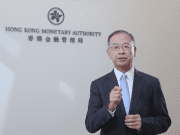How Do You Start Advising Clients in Your New Job?
If you are a new wealth advisor or just got onboard a new firm, how should you start advising clients?
A good start means you have your journey set on a good path. A wrong start means you may have to deal with re-planning, managing mis-matched expectations, clients may switch to other institutions or wealth managers, or you will fall short of your performance targets.
Related Articles:
- 11 Interesting Strategies to Advice Clients
- 7 Factors to Consider Before Wealth Management Advisory Becomes Beneficial to Clients
- 8 Reasons why Clients prefer to place Money in Deposits than Investments
- Top 2 Products to build a Strong Relationship with Clients in Retail Banking
So when you get into your new job, how could you kickstart your new job with better advice for clients?
No. 1 For New Advisors

For new advisors, the journey begins with getting new clients and learning about wealth management and financial solutions. New advisors will have difficulty providing complex financial solutions, so it is always easier to start with simple products, and products that most clients will possibly need, regardless of circumstances.
How do you start:
| Products or Solutions | Financial Needs | Purpose |
| Health Insurance | Illness, Hospitalisation Bills | To Cover Large Medical Expenses |
| Life Insurance | Death, Permanent Disability, Critical Illness, Savings | Savings, Loss of Future Earnings for Left-behind Family Members |
| Unit Trust | Savings, Investments | To grow savings and invest for higher returns than inflation |
As the turnover rate for new advisors is high, there isn’t a need to build a long-term or 10 years plan for clients, which will change the moment you leave or when you discover new insights on how to manage wealth for clients.
Example: After building a quality financial plan and portfolio
- Client went to another advisory firm and park another sum there, using a different advisory methodology.
- Client went to an online brokerage and invested into some stocks that is discussed among friends and online blogs.
- Client thinks that a financial plan had been laid well and starts to plan to buy a luxury home and car in the next 5 years.
- Client thinks that you might not be around in the next 3 years, and start to question your advisory integrity.
Related Articles:
- Why More than 50% of Personal Bankers Quit in 9 Months
- Why more than 50% of Priority Bankers Quit in 15 Months
- Why 50% of Private Bankers Quit in 21 Months?
No. 2 For Experienced Advisors

For experienced advisors, you probably wouldn’t be looking for clients with small assets. This means your clients would need to have sustainable sum of money for you to manage, which is then worthwhile for you to provide valuable wealth management advice to them.
How do you start:
| Products & Solutions | Financial Needs | Purpose |
| Portfolio Management | Professional Investment Advice | Asset Allocation, Economic & Investment Trends & Forecasts |
| Customised Investments | Advanced Investment Solutions | Unique Investment Opportunities, Complex Investment Solutions, Risk Management, Hedging & Leveraging |
| Tax & Estate Planning | Tax & Legal Complications | Reduce Tax & Legal complexities and unnecessary expenses |
With the increased assets to advice, this opens up a wider range of products and services. This means advisors would need to have advanced wealth management knowledge to be able to match the products to the clients diverse and changing needs.
Example: A client may have $300,000 today in cash & portfolio.
- A sudden decision is made to invest in a $1 Million property in Australia.
- A planned education funds of $100,000 for a child to study in a university ballooned to $400,000 when application into a top fashion design university is approved
- Client wants to invest into Vietnam, Myanmar or bet on a default of US Treasuries
Clients with larger asset size have more financial opportunities in life, but are also exposed to more risks and complications.
Read More:
- 7 Important Risks to Manage for Clients
- 5 Reasons Why Financial Planning is More Important than Ever for Clients
- 8 Reasons Why Wealth Management is Not for Everyone
- 7 Factors to Consider Before Wealth Management Advisory Becomes Beneficial to Clients
No. 3 High Net-worth Wealth Managers

High Net-worth Wealth Managers not only have to be skilled in Wealth Management solutions, but also able to build relationships and earn the trust of people who are wealthy, and could be influential and successful.
As this group of clients have far more wealth than many others, they are also weary of trusting others easily to manage their assets.
How do you start:
| Products & Solutions | Financial Needs | Purpose |
| Portfolio Management | Professional Investment Advice | Asset Allocation, Economic & Investment Trends & Forecasts |
| Customised Solutions | Advanced Investment Solutions | Unique Investment Opportunities, Complex Investment Solutions, Risk Management, Hedging & Leveraging |
| Asset Management | Company Formation, International Asset Structuring | For Oversight, Efficiency and Transition |
| Tax & Estate Planning | Tax & Legal Complications | Reduce Tax & Legal complexities and unnecessary expenses |
| Credit & Leverage Facilities | Cashflow | Improve Capital Management & Efficiency, Unlocking Value, Access Capital for Other Opportunities |
It is not easy to explain a wealth management solution to high net-worth clients, especially when their life experience is more diverse.
For example, a portfolio solution for them could comprise of Unit Trust, Stocks, Bonds, Exchange Traded Funds, Structured Products, Options, Futures, Hedge Funds, Private Equity or a combination. To get clients to really understand a portfolio means clients might have to learn about every single product, or should they not? Some clients prefer to be in control while others prefer not to be bothered about it.
While putting together solutions for High Net Worth clients is more complex, the larger assets managed and the fees quantify the time spent.
Related Articles:
- Should you build a Career in Mass Market, Affluent, HNW or UHNW?
- How do Private Bankers acquire new clients?
- 12 Reasons why most clients do not give Private Banker AUM within 6 Months
No. 4 Ultra High Net-worth Wealth Managers

Similar to High Net-worth Wealth Managers, the solutions to Ultra High Net-worth clients are complex. Clients typically have assets of $30 million or more, with some running to a few hundred millions to billions of dollars.
Their clients have large assets, sometimes illiquid with complex international structures in real estate, businesses, private companies, private collections and more.
How do you start:
| Products & Solutions | Financial Needs | Purpose |
| Portfolio Management | Professional Investment Advice | Asset Allocation, Economic & Investment Trends & Forecasts |
| Customised Solutions | Advanced Investment Solutions | Unique Investment Opportunities, Complex Investment Solutions, Risk Management, Hedging & Leveraging |
| Asset Management, Family Office | Company Formation, International Asset Structuring | For Oversight, Efficiency and Transition |
| Tax & Estate Planning | Tax & Legal Complications | Reduce Tax & Legal complexities and unnecessary expenses |
| Credit & Leverage Facilities | Cashflow | Improve Capital Management & Efficiency, Unlocking Value, Access Capital for Other Opportunities |
| Trust, Estate & Foundation | Sustainability, Philanthropy, Aspirations, Family Planning | Improve Capital Management & Efficiency, Unlocking Value, Access Capital for Other Opportunities |
Some Ultra High Net-worth clients know about managing wealth much more than Wealth Managers.
For example, clients could be owning banks, brokerages, real estates or diversified businesses. This means the knowledge of the wealth manager is likely inadequate to be able to advice the clients better.
But clients would not be able to spend time to execute the transaction, thus, the high net-worth wealth manager is really important – to be able to build a relationship, earn the trust, and able to listen to clients and execute the transactions. Occasionally, the wealth manager might have to advice the client, tactfully.
Related Reports:
- Capgemini & RBC Wealth Management: World Wealth Report 2015
- Capgemini & RBC Wealth Management: World Wealth Report 2014
- Rethinking Private Banking in Asia-Pacific: An EY Discussion Paper for Bank Executives
On the other hand, there are also plenty of clients who are incapable of managing their wealth too. Example like sports stars, celebrities, scientists, inventors, who often spent their life pursing their passion, and have little time to deal with finance and personal assets.
Read More:
- 7 Shocks for Advisors When You Get Your Financial Advisor License
- 10 Dangers Wealth Managers Face in their Career
- 11 Interesting Strategies to Advice Clients
- 7 Factors to Consider Before Wealth Management Advisory Becomes Beneficial to Clients
Related Articles:
- 11 Interesting Strategies to Advice Clients
- 5 Reasons Why Financial Planning is More Important than Ever for Clients
- 7 Factors to Consider Before Wealth Management Advisory Becomes Beneficial to Clients
- 7 Important Risks to Manage for Clients
- How do you convince a hard-core deposit client to look at wealth management products?
- 8 Reasons why Clients prefer to place Money in Deposits than Investments
- Top 2 Products to build a Strong Relationship with Clients in Retail Banking
Sign Up / Register
Caproasia Users
- Manage $20 million to $3 billion of assets
- Invest $3 million to $300 million
- Advise institutions, billionaires, UHNWs & HNWs
Caproasia Platforms | 11,000 Investors & Advisors
- Caproasia.com
- Caproasia Access
- Caproasia Events
- The Financial Centre | Find Services
- Membership
- Family Office Circle
- Professional Investor Circle
- Investor Relations Network
Monthly Roundtable & Networking
Family Office Programs
The 2025 Investment Day
- March - Hong Kong
- March - Singapore
- July - Hong Kong
- July - Singapore
- Sept- Hong Kong
- Sept - Singapore
- Oct- Hong Kong
- Nov - Singapore
- Visit: The Investment Day | Register: Click here
Caproasia Summits
- The Institutional Investor Summit
- The Investment / Alternatives Summit
- The Private Wealth Summit
- The Family Office Summit
- The CEO & Entrepreneur Summit
- The Capital Markets Summit
- The ESG / Sustainable Investment Summit





























